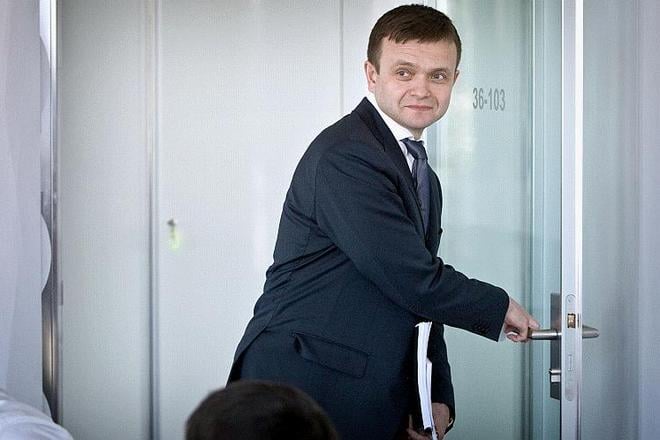Haščák also wanted the CC to preventively stop any summoning of further parliamentary sessions on this matter, the Sme daily wrote on May 26. It also cited Haščák as having alleged that the session on the infamous Gorilla file from June 2015 infringed his rights guaranteed by the Constitution and the List of Fundamental Human Rights and Freedoms.
The Constitutional Court, through, is of a different opinion. The panel chaired by Sergej Kohut and composed of Lajos Mészáros and Ladislav Orosz refused his complaint as evidently unfounded. “A peculiarity of the due cause is that the CC, with respect towards a body of public authority protects the freedom of speech of the civic society,” the decision finds.
The court refused Haščák’s complaint at a non-public session back on February 11, 2016, within a preliminary evaluation. It later published the written reasoning on its website. Penta’s website kauzagorila.sk, where it allegedly published complex documents offering a factual and especially factographic view of the case failed, to publish the CC’s ruling.
Haščák’s lawyer Martin Škubla claims that he did not have time to fully study the ruling of the Constitutional Court as they received it only on May 12. Haščák complained at the CC that the proceeding of the parliament on June 15 violated his right to retain personal moral credit, a good reputation, protection of name and also the right to be protected from unjustified infringement in his privacy. On that day, parliament held a special session proposed by MP Daniel Lipšic (Nova) focusing on the “proceeding of the special prosecutor when investigating the Gorilla case”.
Earlier, opposition MPs had wanted to summon the parliamentary committee for defence and security but were voted over by coalition MPs. They wanted to ask Special Prosecutor Dušan Kováčik who oversees the case why he blocked the efforts of investigators to interrogate key witnesses. On June 12, Haščák sent a letter to then speaker of parliament Peter Pellegrini warning him that the session on the investigation of the Gorilla case was illegal. However, the session took place and Kováčik also participated, saying that he was doing his utmost to investigate the case and that no prosecutor can be asked to explain why he proceeded in a certain case in a certain way. Then, the debate turned to specifically Haščák. The parliament refused the resolution proposed by opposition; instead, it adopted a text proposed by the ruling Smer party which stated that the Gorilla case has to be investigated thoroughly.
Haščák contested the parliament intervening in the powers and activities of prosecution bodies. However, the Constitutional Court found that the complainant was not the victim of the event, as he was only mentioned in the debate on fundamental social issues. “The complaint rather reflects his emotional concern which is for now too distant from a factual legal defensibility."
The Special Prosecutor’s Office did not tell Sme in what phase the investigation of Gorilla is, as the SP Kováčik was out of office for several days.
Disclaimer: Penta financial group also has a 45-percent share in Petit Press, the co-owner of The Slovak Spectator.



 Jaroslav Haščák (source: Sme - Tomáš Benedikovič)
Jaroslav Haščák (source: Sme - Tomáš Benedikovič)